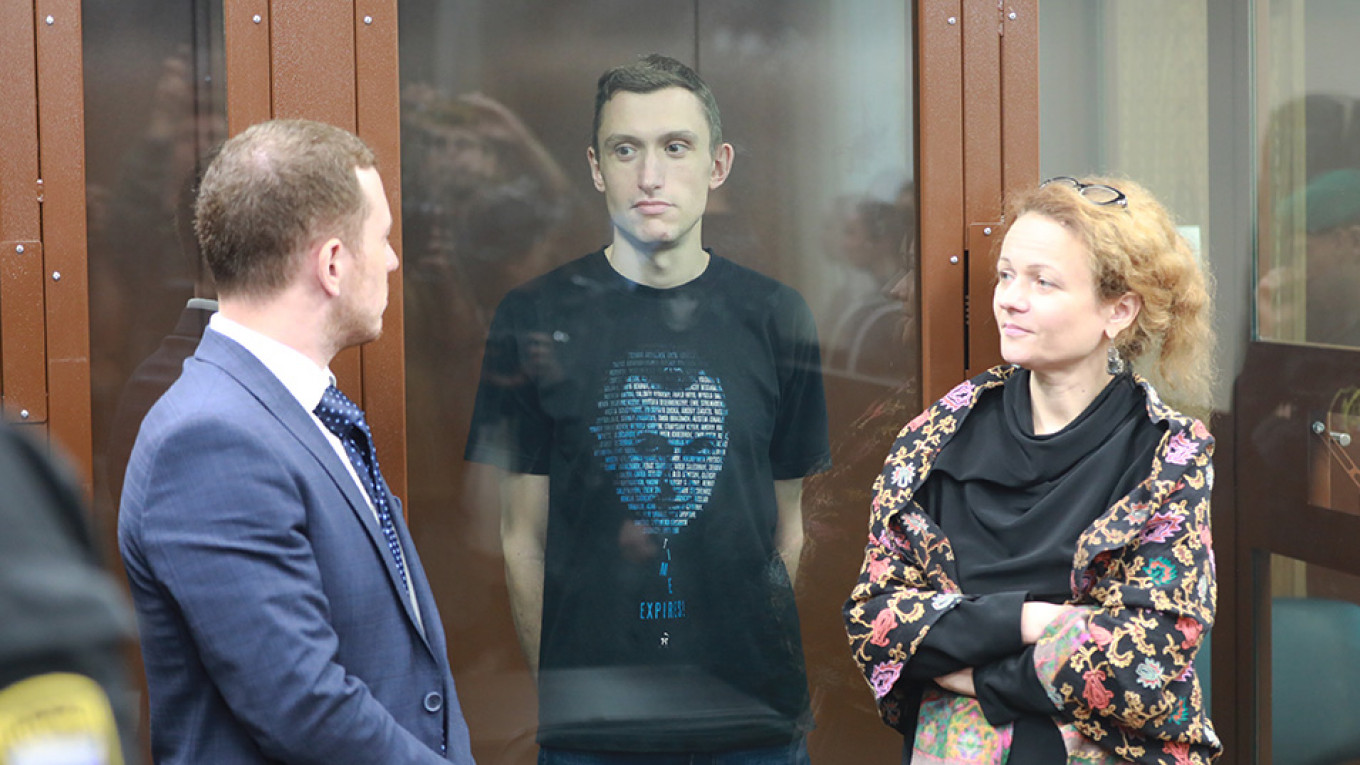
Russia’s Constitutional Court has ordered a review of Moscow protester Konstantin Kotov’s guilty verdict days after President Vladimir Putin ordered prosecutors to investigate whether his conviction was lawful.
Kotov, a 34-year-old programmer, was sentenced to four years in prison in September for “repeated” participation in unauthorized rallies. The verdict made him the second person to be prosecuted under a widely criticized law that has made nonviolent protests a criminal offense.
The Constitutional Court ruled Monday that lower-court decisions in Kotov’s case “diverge” from the constitutional and legal interpretation of the criminal article he was convicted under.
Kotov’s verdict fails to mention whether his actions posed a “significant” threat and whether the protest “stopped being peaceful” due to his violation, the court said.
On Saturday, Putin ordered Russia’s Prosecutor General to investigate Kotov’s conviction and establish if the verdict was lawful and justified.
The president on Dec. 19 pledged to reporters to look into Kotov’s conviction.
Kotov was arrested and charged amid a wave of criminal prosecutions over last summer’s Moscow election protests. The rallies, which began after opposition candidates were barred from the ballot in the Sept. 8 Moscow City Duma election, became the largest wave of protests seen in Russia since 2011-2013.
The clause in the Russian Criminal Code punishing repeat violations of protest rules came to be known as Ildar “Dadin’s article” after the first activist who was sentenced under it in 2015.
Dadin was released in 2017 when Russia’s Supreme Court decided that charges against him should be dropped. Judges ruled at the time that while the law was legal under the Russian Constitution, it should only be used against protesters who “posed a threat” to society.
Reuters contributed reporting to this article.
